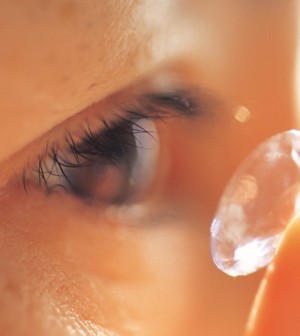- Could Your Grocery Store Meat Be Causing Recurring UTIs?
- Are You Making This Expensive Thermostat Error This Winter?
- Recognizing the Signs of Hypothyroidism
- 10 Strategies to Overcome Insomnia
- Could Artificial Sweeteners Be Aging the Brain Faster?
- Techniques for Soothing Your Nervous System
- Does the Water in Your House Smell Funny? Here’s Why
- Can a Daily Dose of Apple Cider Vinegar Actually Aid Weight Loss?
- 6 Health Beverages That Can Actually Spike Your Blood Sugar
- Treatment Options for Social Anxiety Disorder
Some Primates Have Vision Troubles as They Age

Just like humans, some primates start having difficulty seeing things up close as they age.
Researchers reviewed photos of 14 wild bonobos as they groomed each other. The primates were between 11 and 45 years old. The older they were, the longer they stretched their arms as they groomed, the study reported.
The findings were published Nov. 7 in the journal Current Biology.
“We found that wild bonobos showed the symptoms of long-sightedness around 40 years old,” study author Heungjin Ryu, from the Primate Research Institute at Kyoto University in Japan, said in a journal news release.
“We were surprised that the pattern found in bonobos is strikingly similar to the pattern of modern humans,” he said.
There have also been anecdotal reports of similar behavior in chimpanzees.
Long-sightedness might hinder the social lives of older bonobos and could explain why older individuals aren’t favored when it comes to selecting grooming partners, Ryu said.
He also noted that people who grow long-sighted with age also have difficulty seeing in the dark, something that could be a major challenge for the bonobos because they live in the shade of the rainforest canopy.
The findings suggest that long-sightedness in people isn’t due to too much time spent reading or staring at a screen. Rather, it’s a natural process of aging from our evolutionary past, Ryu said.
More information
The U.S. National Institute on Aging has more about eyes and aging.
Source: HealthDay
Copyright © 2026 HealthDay. All rights reserved.










